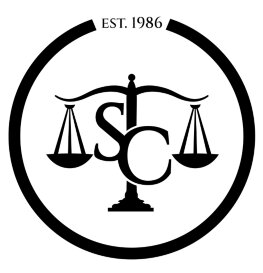Best Collaborative Law Lawyers in Pietermaritzburg
Share your needs with us, get contacted by law firms.
Free. Takes 2 min.
Free Guide to Hiring a Family Lawyer
List of the best lawyers in Pietermaritzburg, South Africa
About Collaborative Law in Pietermaritzburg, South Africa
Collaborative Law in Pietermaritzburg, like in many parts of South Africa, is an evolving legal approach focusing on resolving disputes amicably and without the need for litigation. This method is particularly popular in family law matters such as divorce, custody arrangements, and other interpersonal disputes. Collaborative Law encourages the parties involved to work together with their lawyers to reach a mutually beneficial agreement, emphasizing open communication, transparency, and respect.
Why You May Need a Lawyer
There are several situations where one might need a lawyer specializing in Collaborative Law in Pietermaritzburg. These include:
- Divorce and separation, where both parties strive to negotiate terms with minimum conflict.
- Child custody and visitation arrangements that need to be settled amicably.
- Property and financial disputes between separating couples.
- Family businesses transitioning ownership or operation to avoid disputes.
- Personal disputes that require structured negotiation to preserve relationships.
Hiring a Collaborative Law lawyer can help you achieve a resolution tailored to your needs while focusing on preserving friendly relations and minimizing the impact of adversarial court proceedings.
Local Laws Overview
In Pietermaritzburg, as part of the broader South African legal system, Collaborative Law operates under the same legal frameworks that govern family and civil law. Key aspects relevant to Collaborative Law include:
- The Children's Act 38 of 2005, which focuses on child welfare and rights, is often a critical component in Collaborative Law cases involving minors.
- The Divorce Act 70 of 1979, which sets out the procedures and criteria for divorce and is a significant point of consideration in collaborative divorce negotiations.
- Mediated settlements under the Mediation in Certain Divorce Matters Act 24 of 1987, encouraging parties to settle disputes outside of court.
These legal frameworks guide the collaborative process, ensuring that agreements comply with the law and are fair to all parties involved.
Frequently Asked Questions
What is the main benefit of choosing Collaborative Law over traditional litigation?
Collaborative Law tends to be less adversarial, saves time, reduces costs, and helps maintain personal relationships by focusing on negotiation and agreement rather than court battles.
Can all lawyers practice Collaborative Law?
While any trained lawyer can practice in this area, it is advisable to seek out lawyers who have specialized training in the collaborative process to ensure a smooth experience.
Is Collaborative Law legally binding?
Yes, the agreements reached through Collaborative Law are legally binding, provided they are entered into voluntarily and are lawful.
How long does the collaborative process usually take?
The timeline can vary depending on the complexity of the issues and the parties' willingness to negotiate, but it is typically faster than traditional court proceedings.
What happens if one party wants to go to court?
If either party decides to take the matter to court, all collaborative professionals must withdraw from the case as the collaborative process is based on the agreement to stay out of court.
Are there situations where Collaborative Law is not appropriate?
Yes, Collaborative Law may not be suitable for cases involving domestic violence, severe power imbalances, or when one party is unwilling to disclose essential information.
How is confidentiality handled in the collaborative process?
Confidentiality is a cornerstone of the process, where parties agree that discussions and documents produced during negotiations cannot be used in court.
What costs are involved in Collaborative Law?
The costs are generally limited to professional fees for the lawyers and any necessary experts, which are often lower than litigation costs due to reduced court time.
Can Collaborative Law address complex financial issues?
Yes, financial experts can be involved to assist in understanding and resolving complex financial matters as part of the collaborative process.
How do I choose the right Collaborative Law lawyer?
Look for a practitioner who is trained in Collaborative Law, has relevant experience, and is someone you feel comfortable working with.
Additional Resources
Various resources and organizations can be helpful if you're exploring Collaborative Law in Pietermaritzburg. These include:
- The Family Mediation Association of South Africa (FAMAC), which offers resources and referrals to qualified mediators and lawyers.
- Legal Aid South Africa, which can provide guidance and assistance for those who qualify for legal aid services.
- The Southern African Association of Mediators, which supports the practice of mediation and collaborative law through education and training.
Next Steps
If you believe Collaborative Law might be the right path for your legal issues, consider the following steps:
- Research and contact a lawyer who specializes in Collaborative Law in Pietermaritzburg.
- Schedule an initial consultation to discuss your situation, explore options, and understand the process involved.
- Gather all pertinent information and documents related to your case for a more effective consultation.
- Remain open to negotiation and collaboration, as your willingness will significantly impact the process's success.
Embarking on a collaborative process can lead to more amicable resolutions and long-term benefits, especially in sensitive personal matters.
Lawzana helps you find the best lawyers and law firms in Pietermaritzburg through a curated and pre-screened list of qualified legal professionals. Our platform offers rankings and detailed profiles of attorneys and law firms, allowing you to compare based on practice areas, including Collaborative Law, experience, and client feedback.
Each profile includes a description of the firm's areas of practice, client reviews, team members and partners, year of establishment, spoken languages, office locations, contact information, social media presence, and any published articles or resources. Most firms on our platform speak English and are experienced in both local and international legal matters.
Get a quote from top-rated law firms in Pietermaritzburg, South Africa — quickly, securely, and without unnecessary hassle.
Disclaimer:
The information provided on this page is for general informational purposes only and does not constitute legal advice. While we strive to ensure the accuracy and relevance of the content, legal information may change over time, and interpretations of the law can vary. You should always consult with a qualified legal professional for advice specific to your situation.
We disclaim all liability for actions taken or not taken based on the content of this page. If you believe any information is incorrect or outdated, please contact us, and we will review and update it where appropriate.











